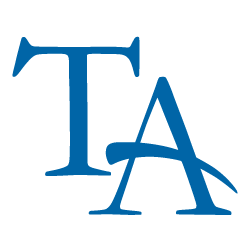The following resources provide a helpful starting point for those interested in learning more about the Thales Academy educational philosophy.
Read The Thales Way, our founder's book about our educational philosophy
Direct Instruction:
The Pre-K-5 years are the most critical in a child's academic career. These foundational years set the stage for all further learning, and largely determine the trajectory a student will take well into high school, college, and beyond. In grades Pre-K through 5, students learn and master the fundamentals of all core academic subjects, preparing them for success in advanced learning in the future. A child's experience in school is critical during these early years; teachers must carefully cultivate a love of learning and develop students' natural curiosity and sense of wonder. In addition, the building blocks of character are formed, as children learn to choose right from wrong and develop innate traits of respect, honesty, and courage so that later on, they may live as productive citizens of integrity. The Thales Academy elementary program is designed to meet these goals through the use of our robust Direct Instruction curriculum, character formation, and skills development. We do not take the Pre-K-5 years for granted, as we know that they set the stage for a child's road to success for decades to follow.
- Direct Instruction: A Thales Academy Short Film
- The National Institute for Direct Instruction (NIFDI)
- Clear Teaching: With Direct Instruction, Siegfried Engelmann Discovered a Better Way of Teaching , Shepard Barbash
- "5 Keys of Direct Instruction"
- "What is Direct Instruction?," William L. Heward
- " Myths and Truths About Direct Instruction ," Sara G. Tarver
- " Research on Direct Instruction: 25 Years Beyond DISTAR ," Gary L. Adams and Siegfried Engelmann
- " Meta-Analysis Confirms Effectiveness of an Old School Approach: Direct Instruction ," Robert Pondiscio
Classical Education:
The 6-12 years build upon the foundation developed in elementary school. These rigorous years challenge students to think critically on their own and to develop their own original conclusions based on their knowledge and reasoning skills. The classical curriculum utilizes several important components that contribute to these goals: the study of Latin and English grammar, to help students develop excellent writing and grammar skills; Logic, to allow students to critically reason through arguments and determine truth from untruth; Rhetoric, to teach students how to clearly and concisely express their ideas; writing and the senior thesis, to allow students the opportunity to express their ideas through the written word; and advanced mathematics and the sciences, to challenge students to grasp how the world functions and operates. JH/HS coursework is paired with Socratic discussion, allowing students to debate and exchange their ideas with each other in a structured round table discussion format. This style of learning ensures that students not only take in information, but put it into practice immediately, and daily, in the classroom. After years of immersion in the classical curriculum, Thales Academy students graduate with a high level of thinking and communication skills, as well as a robust work ethic and a sense of earned confidence that quickly allow them to achieve high levels of success and actively contribute to their communities and the workplace.
- The Lost Tools of Learning, Dorothy Sayers
- " The Lost Culture of Learning & Three Roads Forward ," Dr. Ryan Olson, University of Virginia
- " What is a 'Liberal Arts Education?' ," Dr. Grattan Brown, Belmont Abbey College
- "Humanities Education in a Globalized World," Dr. Jon Stewart, Harvard University
- "What if everyone had a classical education?," Rebekah Hagstrom
- "The Classical Curriculum," Andrew Kern
- "The Socratic Method: What it is and How to Use it in the Classroom," Mariatte Denman, Stanford University
- "What is Socratic Dialogue?," Andrew Kern
- " An Example of Great Socratic Teaching ," Christopher Perrin


